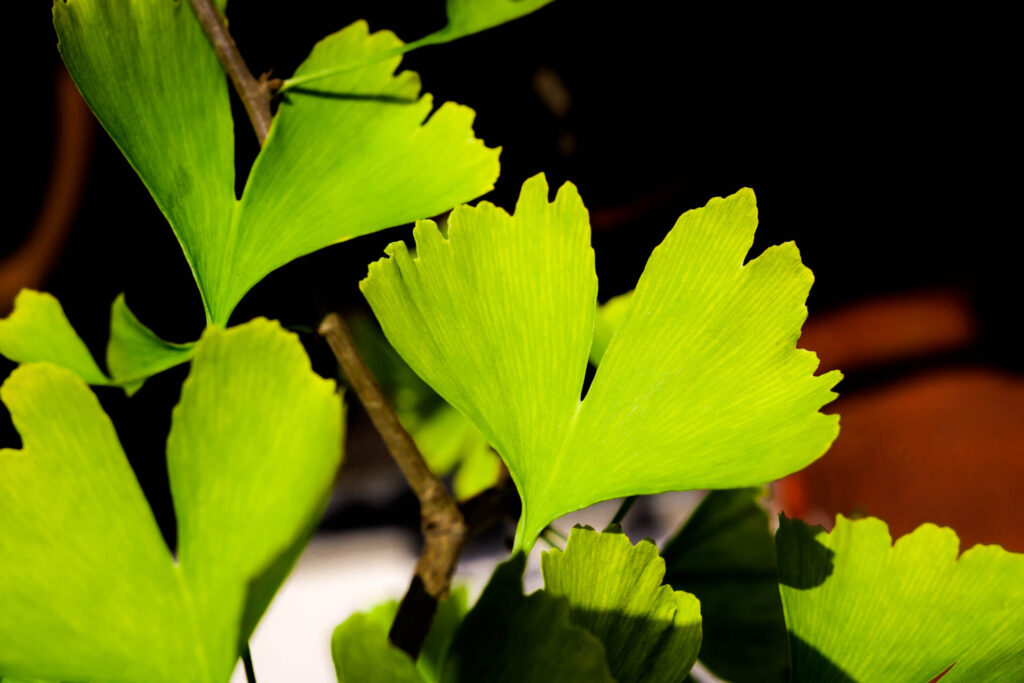
Herbal remedies and medicine have been used in human history for thousands of years. Regardless of the advancements of pharmaceuticals in modern times, the popularity of herbal supplements and remedies has increased due in part to their affordability and accessibility compared to conventional medicines.
Join me as we explore 7 of the most commonly used herbs in herbal supplements and remedies, their benefits, and any safety concerns that may be relevant.
Ginkgo Biloba
Also known as maidenhair, the ginkgo biloba is a tree native to China. Although in the past the leaves and seeds were used in traditional Chinese medicine, only the leaves are used in ginkgo extract now.
Ginkgo biloba contains powerful antioxidants which help fight free radicals. Free radicals are highly reactive particles commonly produced by the body when converting food to energy. Ginkgo can help reduce and fight inflammation caused by many conditions including arthritis, irritable bowel disease, and heart disease. The anti-inflammatory properties in ginkgo have also been used to help treat:
- Anxiety
- Depression
- Migraines
- Headaches
- Respiratory diseases like asthma
Overall the risk associated with ginkgo biloba is low for most adults, however, if you are allergic to plants containing alkylphenols it may cause harm. Common side effects of ginkgo include:
- Nausea
- Diarrhea
- Headaches
- Stomach Pain
- Dizziness
- Allergic Reaction
Ginkgo can have adverse reactions with NSAIDS (ibuprofen, aspirin, naproxen), antidepressants, and blood thinners. Consult your primary care provider before using ginkgo if you’re currently using these medications.
Echinacea
A native North American plant, echinacea was used by the natives. Many people believe the roots of the echinacea have the most potent effects through the leaves and flowers are also used.
Echinacea is primarily used to prevent the common cold. It’s also used to treat cold and flu symptoms. It’s usually drunk as a tea or supplement; it can also be applied topically.
Echinacea is considered safe for most adults though common side effects include nausea, stomach irritation, skin rash, or allergic reaction.
St. John’s Wort
St. John’s wort’s uses can have been traced back to ancient Greece. It was used to aid in healing wounds, and relieve insomnia, depression, and lung and kidney conditions.
Today St. John’s wort is generally used to treat varying cases of depression. Some studies show short-term use of St. John’s wort may be as effective as some current antidepressants.
St. John’s wort has many interactions with modern medicines including birth control, antidepressants, blood thinners, and pain medications. St. John’s wort should only be used under the guidance of your primary care provider as some drug interactions could lead to harmful conditions.
Ginseng
The ginseng root is typically used in traditional Chinese medicine to increase energy, reduce inflammation and boost immunity and brain functions. The root is traditionally steeped to make tea or dried to make powder.
Ginseng has anti-inflammatory properties and is an antioxidant. Ginseng may help protect against oxidative stress and can help reduce inflammation. And is still used to increase energy levels and fight tiredness.
For adults, ginseng appears to be safe but can cause mild nervousness and insomnia. Though people taking diabetes medicine should monitor their blood sugar levels carefully to make sure levels don’t go too low when using ginseng.
Garlic
The common garlic you can purchase at the grocery store has been used in herbal medicine for thousands of years. Used for cooking and its potential health benefits, garlic has been taken to prevent and treat many different conditions.
At present, garlic can be used to aid with conditions linked to the heart and the circulatory system including:
- High Cholesterol
- Heart Attack
- Hypertension
- Heart Disease
Though commonly consumed in foods, garlic when taken as an herbal supplement may increase the risk of bleeding.
Ginger
Much like garlic, ginger has been used as an ingredient in food and in medicine. Originally from Southeast Asia, Ginger is among one of the healthiest plants out there. Ginger contains high amounts of gingerol, which has strong anti-inflammatory and antioxidant properties.
Ginger has been used to aid with symptoms of the following:
- Nausea
- Arthritis
- Heart Disease
- Asthma
Ginger rarely causes side effects, though if consumed in large doses it can cause diarrhea or heartburn.
Chamomile
Native to Europe and Western Asia, Chamomile is a white flower in the daisy family. For thousands of years, chamomile was used to help treat fevers, headaches, kidney, liver, and bladder conditions, and many others.
Currently, chamomile is steeped to make tea to help with insomnia, anxiety, and indigestion. Some people use chamomile topically to reduce skin irritations and promote healing wounds though not enough research has been done for a conclusive answer.
For most adults, side effects are rare; however, if you are allergic to ragweed and chrysanthemum you may be allergic to chamomile. Chamomile contains a naturally occurring chemical with a similar effect to blood thinners. Talk to your primary care provider if you are taking blood thinners as too much chamomile can have an adverse reaction.
Although herbal remedies are natural, you should always consult with your primary care provider and herbal pharmacist before using herbal supplements as they’ll have a better understanding of how some herbs can react to your body or other medication you may be using.
Take the Next Step In Improving Your Health by Contacting SOHMA Integrative Medicine
Our goal is to help you improve your health. You can reach out to us and ask us about the Myers Cocktail, IV Therapy, Chiropractic care, or how our other health service lines can help you with your journey to improved health.
Located in Long Beach, CA we help individuals from the surrounding cities.
We look forward to helping you take the next step in your journey to better health.
Leave a Reply